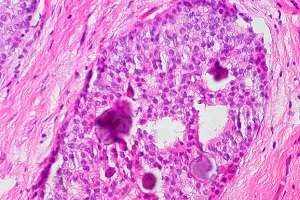Single-dose radiotherapy treatment improves cancer recovery

Western Australian breast cancer patients are helping to boost evidence for a single-dose radiotherapy regime, with researchers hoping to provide a new option that is both effective and more convenient.
Since 2004, 385 WA women have been recruited for the targeted intraoperative radiotherapy (TARGIT) trial, a randomised non-inferiority trial based at the University College London, involving almost 3000 participants from 33 centres in 11 countries.
University of Notre Dame Australia chair of biostatistics and trial statistician Professor Max Bulsara says conventional radiotherapy is given externally and irradiates the whole breast, requiring 15 to 30 hospital visits over five to six weeks.
"TARGIT is a one-off 30-minute radiotherapy treatment carried out when the lump is removed and while still under anaesthesia, that removes the need for conventional treatment," he says.
A recent five year analysis of local cancer recurrence and mortality revealed no significant difference between all-cause and breast cancer mortality across the two treatment groups.
The analysis also showed significantly fewer non-breast cancer deaths with TARGIT versus conventional therapy.
Prof Bulsara says these results in conjunction with previous analysis report fewer side-effects and added economic and healthcare resource benefits, make TARGIT a suitable alternative therapy.
"With three machines in Australia we are fortunate to have two machines in WA, but at this stage they are only for private patients or those on the trial," he says.
"It's not yet available for the general public but we are hopeful this will change.
"We think the results are definitely mature enough for there to be serious consideration to change in practice."
Prof Bulsara says there is a global momentum for introducing TARGIT therapy, with countries with potentially long travel times to tertiary medical services, as well as developing countries, likely to reap the most benefit.
"TARGIT would be particularly beneficial in countries like Australia where rural cancer patients currently have a much worse outcome than their urban counterparts," he says.
"The current options are either partial or radical mastectomy as many women aren't able to spend six weeks away from their support system for treatment.
"If this [treatment] becomes available, they would be able to have breast-saving surgery and radiotherapy at the one visit."
With recruitment targets met in June 2012, the group now plan to continue with long-term follow-up of recurrence rates, and all-cause and cancer-specific mortality.
They will also conduct a detailed economic analysis and designing other spin-off trials to maximise the effectiveness of the treatment.



















